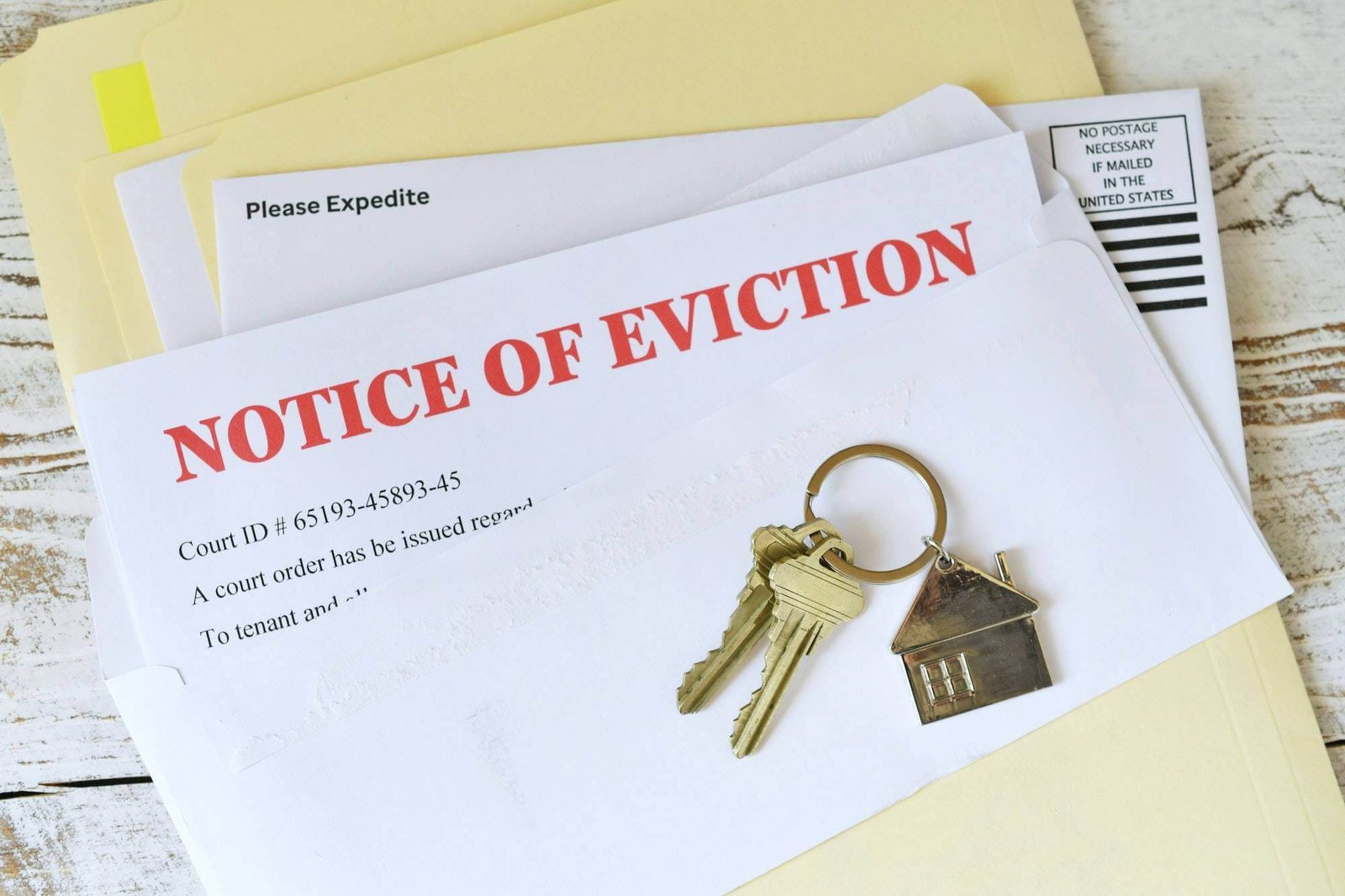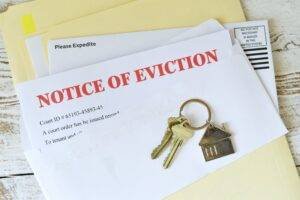Losing your job can be a stressful and overwhelming experience, especially if you have a mortgage to pay. It’s a reality that many people face, and it can leave you feeling like you’re drowning in debt. However, if you find yourself in this situation, it’s essential to know that there are options available to you. In this blog post, we’ll explore what you need to know if you’ve lost your job and can’t pay your mortgage, so you can take action and get back on your feet.
1. Notify Your Mortgage Company Immediately
If you have recently lost your job and can’t pay your mortgage, the first step is to notify your mortgage company immediately. This will give you more options for potential solutions. The earlier the company is aware, the better chance you have to take advantage of provisions for those facing temporary financial hardships. You may be eligible for a forbearance, which will temporarily postpone or reduce your payments. Another option is mortgage modification, which could be a more permanent solution to avoid foreclosure. You may also qualify for a forbearance under the Coronavirus Aid, Relief, and Economic Security (CARES) Act. Remember, the longer you wait without making a payment, the worse it will be for your credit score. [1][2]
2. Consider Forbearance or Mortgage Modification
Homeowners who have lost their jobs may consider forbearance or mortgage modification to help them temporarily reduce or pause their mortgage payments while they work on their finances. Forbearance is when the mortgage lender or servicer allows you to pause or reduce your payments for a limited time without additional fees or penalties. Mortgage modification, on the other hand, permanently reduces your monthly payments by changing your loan terms. Eligibility for these options may depend on the type of loan you have and whether it is federally backed. Homeowners should contact their servicer to discuss their options or seek help from a HUD-approved housing counseling agency. It is important to note that missed payments will still need to be repaid eventually. [3][4]
3. Government-Mandated Forbearance for Those Impacted by COVID-19
Government-mandated mortgage forbearance during COVID-19 provides homeowners the option to postpone or reduce mortgage payments a limited period. Under the CARES Act, homeowners with federally backed mortgages can request forbearance for up to a year. Mortgage servicers are required to discuss payment relief options with borrowers who are struggling financially, even if their loans are not federally backed. Homeowners are still responsible for paying missed payments after forbearance, typically on a repayment plan lasting 3 to 6 months. Additional extensions are possible for most loans, up to a maximum of 18 months. Borrowers experiencing hardship due to COVID-19 are encouraged to contact a HUD-approved housing counseling agency for assistance in developing a tailored plan and working with their mortgage companies. [5][6]
4. Consequences of Not Paying Your Mortgage
Not paying your mortgage can have severe consequences, both financially and personally. Missing a mortgage payment by more than 30 days can lower your credit score significantly. It can also lead to late fees, increased interest rates, and ultimately foreclosure. Foreclosure not only results in the loss of your home but can also harm your chances of obtaining credit in the future. It can take up to seven years for the foreclosure to come off your credit report. Foreclosure can also affect your employability, as some employers consider credit history in their hiring decisions. It is essential to reach out to your lender and consider options such as forbearance or mortgage modification to avoid the consequences of missed mortgage payments. [7][8]
5. Selling Your Home to a Professional Real Estate Investor
When facing financial difficulty and unable to keep up with mortgage payments, homeowners can consider selling their home to professional real estate investors. This allows them to avoid a missed or late payment and negative consequences on their credit score. Selling to a professional home buyer means avoiding the hassle of dealing with a real estate agent, showings, or repairs. The process is quick and guarantees a sale, as home buyers will purchase properties in any condition. Moreover, it can leave the homeowner in a better financial position. Companies like Pavel Buys Houses offer free consultations and present fair cash offers to homeowners in difficult financial situations. [9][10]
6. 7 Steps to Prevent Mortgage Default When You Lose Your Job
If you find yourself unemployed and struggling to keep up with mortgage payments, there are steps you can take to prevent default. First, review any insurance policies you have to see if they cover mortgage payments during unemployment. Dip into savings to make payments while you search for a new job, and contact your lender as soon as possible to discuss payment plans. Consider refinancing or seeking a loan modification to reduce monthly payments. Look into government programs that offer temporary relief, such as forbearance agreements. Above all, stay proactive and communicate with your lender to avoid defaulting on your mortgage and potentially losing your home. [11][12]
7. Review Your Insurance
One of the steps to prevent mortgage default when you lose your job is to review your insurance policy. Some insurance policies cover mortgage payments if you become unemployed. For example, Genworth Financial’s Involuntary Unemployment Insurance plan is offered for free with many of its mortgage-insurance products. This type of insurance program covers your mortgage payments for up to six months if you lose your job within a specified time after buying your house. However, the coverage is limited to a specific amount per month. It’s important to note that insurance doesn’t pay your mortgage indefinitely; it’s only a short-term solution. Therefore, it’s crucial to act quickly and utilize other options to prevent defaulting on your mortgage. [13][14]
8. Dip into Savings
In case of job loss, one of the first things a person should do is check their available savings and create a budget to cover essential living expenses. Once they determine how long they can make mortgage payments from savings, they should contact their lender as soon as possible to discuss their situation. Writing a formal hardship letter explaining their job loss and outlining a plan to repay the mortgage is also recommended. It is crucial to remember that mortgage protection insurance covers the mortgage payments only for a limited time. Therefore, it is essential to consider it a short-term solution. A person must have at least two to three months of savings left before they contact the lender. [15][16]
9. Contact Your Lender Before Missing Payments
Before missing any mortgage payments, it is crucial to immediately notify your lender of the situation. This will allow for the most options to be available to you, such as a forbearance or mortgage modification. With the current pandemic, homeowners with a government-backed mortgage are eligible for a forbearance until December 31, 2020. It is important to request this forbearance if needed to avoid severe consequences, including negative impacts on credit scores. If continuing to make mortgage payments is not feasible, consider selling your home to a professional real estate investor for a quick and easy solution. Contacting a HUD-approved housing counseling agency can also provide expert assistance on avoiding foreclosure. Remember to never pay anyone upfront for help and watch for foreclosure scam warning signs. [17][18]
10. Writing a Hardship Letter to Your Lender
When facing financial hardships, writing a hardship letter to one or more creditors can help manage debt payments. A hardship letter explains circumstances causing inadequate debt payment, including specific details such as the date hardship began, the cause, and expected duration. State what kind of relief is needed, such as relief from paying the full amount, a lower interest rate, or extended payment periods. Some events that could constitute a financial hardship may include military deployment, permanent relocation orders, and serious illnesses affecting finances. While some lenders provide the necessary information for requesting financial hardship assistance online, writing a hardship letter may help organize thoughts and requests. [19][20]
Consider working with an investor such as Better House Buyers
When individuals lose their job and cannot pay their mortgage, one option is to work with a professional home buyer such as Better House Buyers. This allows people to avoid the stress of having to deal with real estate agents or showings, and they can sell their property in any condition. Additionally, a real estate investor can close on the house fast, allowing individuals to move on to a different living situation. Better House Buyers is a licensed cash home buyer that can purchase properties no matter what the circumstance, and they offer free consultations to discuss options. Selling one’s home may leave individuals in a better financial position than before, and it may be the best option in these situations. [21][22]







